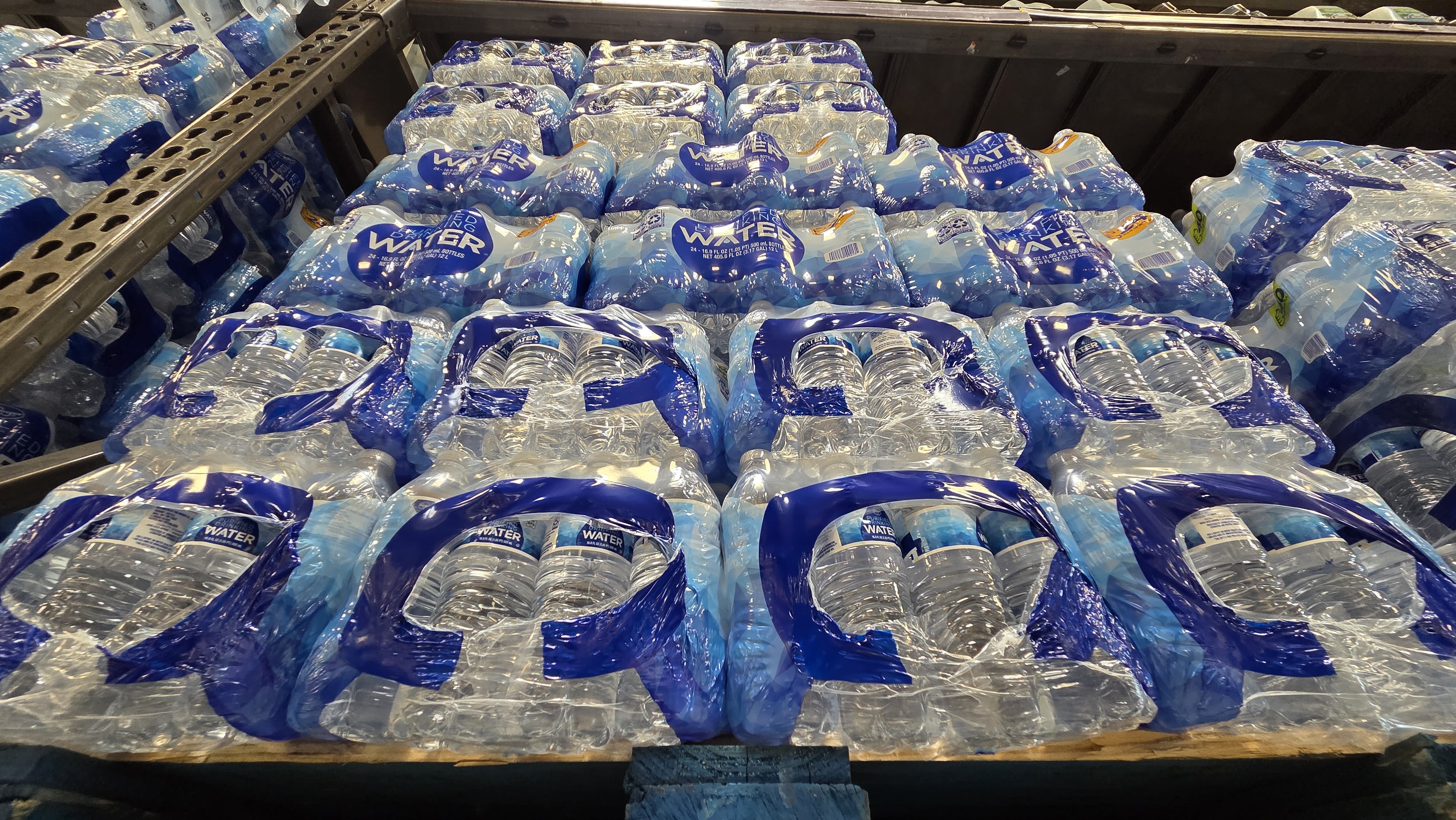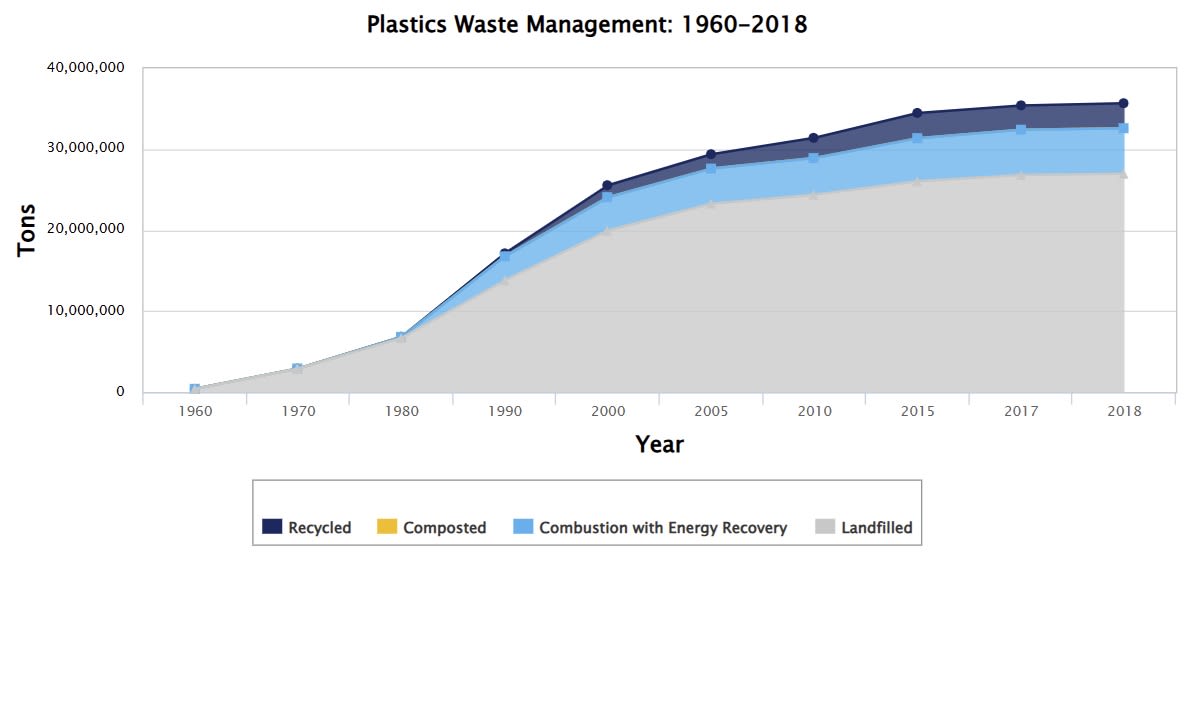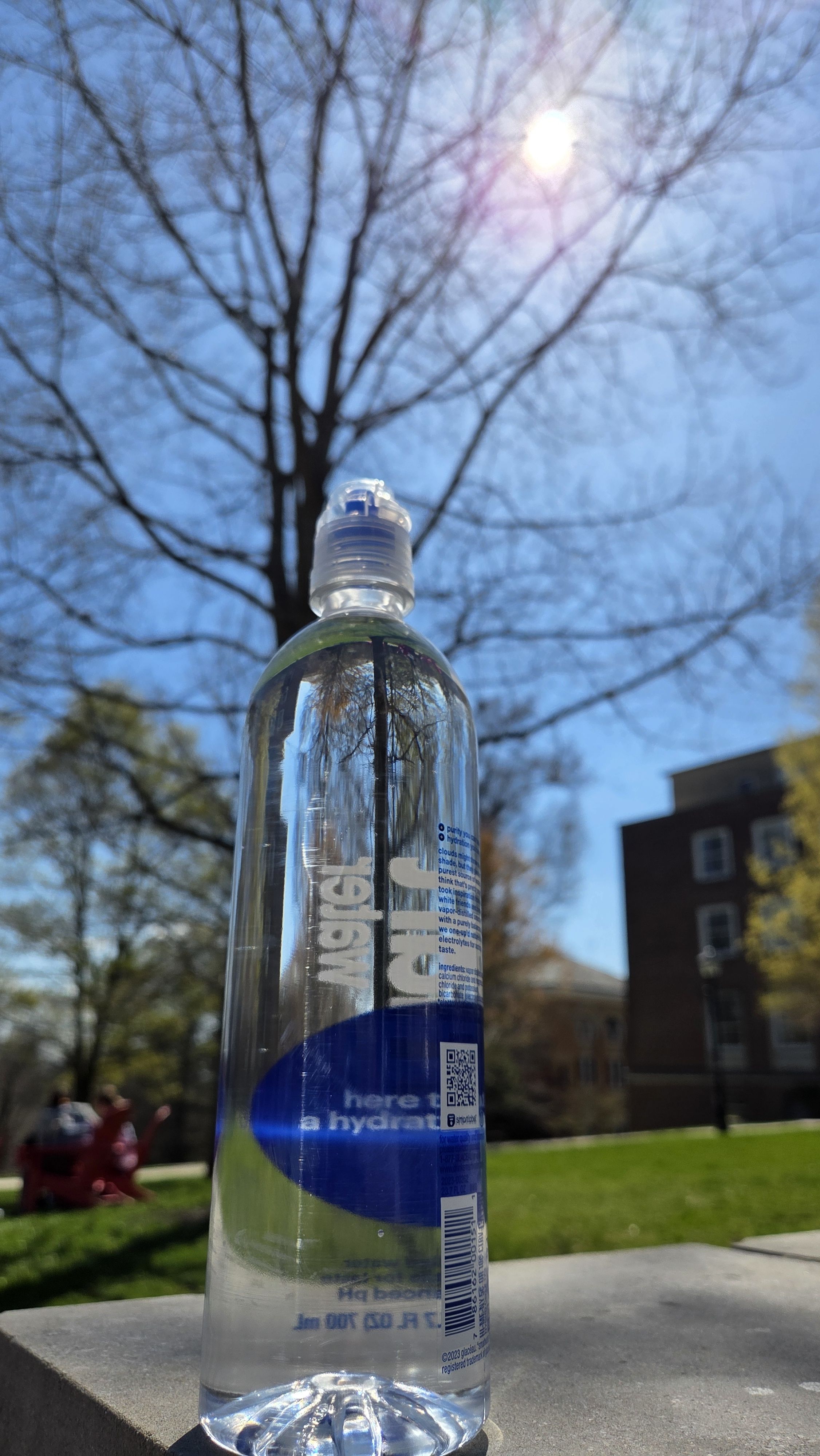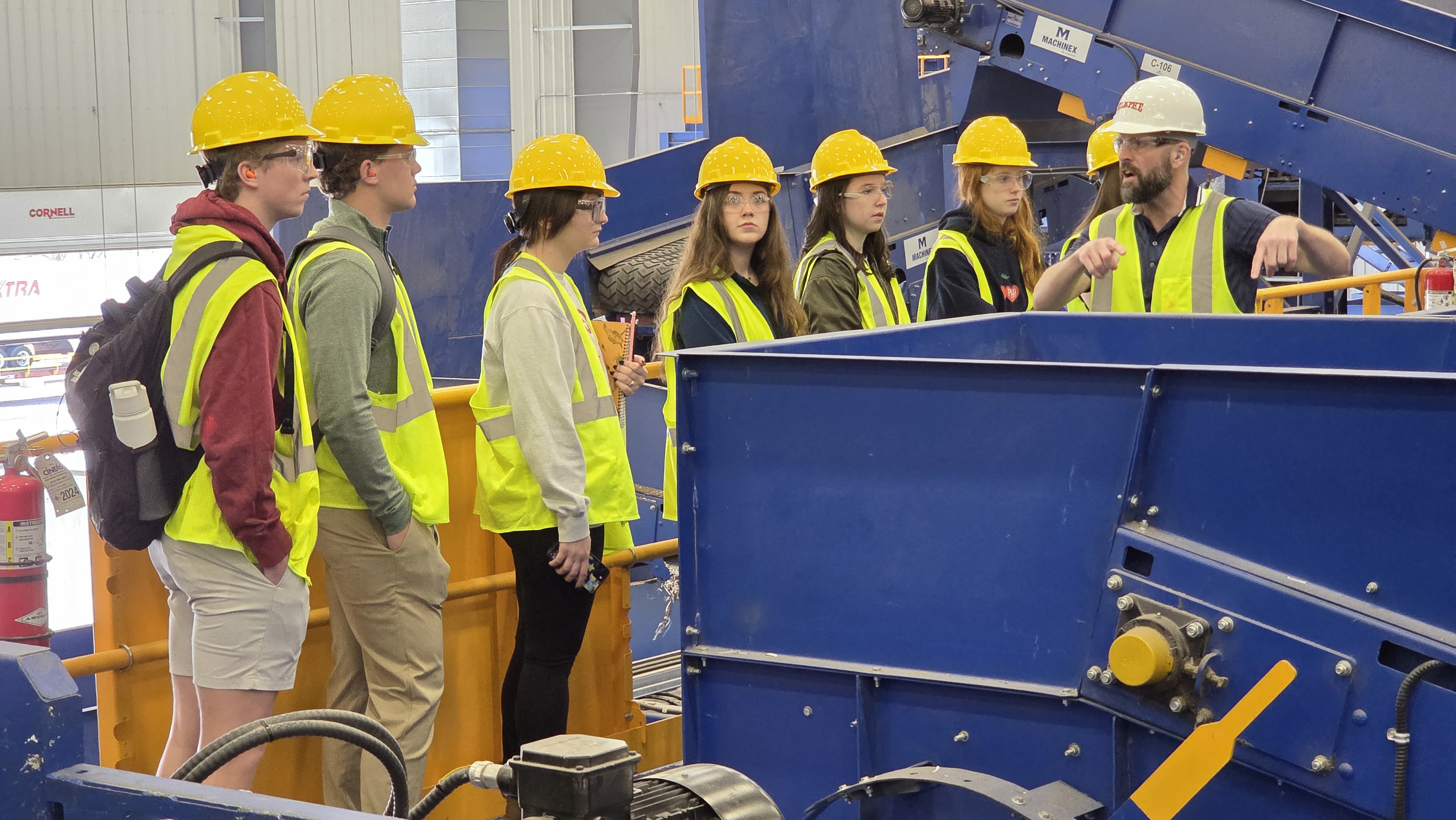We are drowning in plastic
An investigative report by The Reporting Project

Introduction
By Doug Swift
After dinner clean up, I put the leftover stew into a bowl. I grab the roll of plastic wrap, seal it tight, and put the leftovers into the fridge. Easy dinner tomorrow.
This is something I have done forever. It's easy, cheap, convenient. But after supervising a three-month investigative report on plastics, it's something I'll never do again. Especially after learning about microplastics.
The amount of plastic, especially single use plastic, produced and discarded today is unimaginable. According to the American Chemistry Council, the United States consumed 38.7 million tons of plastic in 2018, the last year statistics were available. By 2050, this number is expected to double.
Chart courtesy of American Chemistry Council.
Chart courtesy of American Chemistry Council.
The petroleum industry has been touting “advanced recycling” as one solution to the plastic waste problem. So when an advanced recycling plant moved into Licking County, The Reporting Project decided to spend three months and dedicate 16 reporters to an investigative report on plastic.
That plant didn’t turn out to be as much of a story as so much else we learned about plastic creation, use and waste.
I was not prepared for how much I would learn about the gravity of the plastic issue, and the degree to which it has infiltrated all our lives, including here in Licking County.
As Licking County Commisioner Tim Bubb said, “That’s the whole dilemma of plastic. We all want cheap plastic packaging. We never really saw it as the evil that it is, and it doesn’t go away easily, so we’re drowning in it.”
Indeed, just because we've “thrown it away,” just because we can't see it, that doesn't mean it's gone away. Literally. As you read these words, you could be breathing in microplastics.
But knowledge is power. The team at The Reporting Project has compiled eight stories defining the problem and seeking solutions. Following are summaries of these stories. You can click on the full stories below.
In Tear Tactics, we describe the greenwashing strategies that companies have used throughout the past several decades. This campaign has allowed them to continue to reap large profits while polluting the planet and our bodies.
In Microplastics are Everywhere, we report on scientific findings of microplastics found throughout the environment, and in human remains, with disturbing health implications for all of us.
In Recycling or Polluting?, we take a deep dive into what “advanced recycling” is. We also look at the struggles Freepoint Eco-Systems has had getting its advanced recycling plant up and running in Licking County.
In It Doesn't Have to Be This Way, we take a look at Germany, considered one of the most successful countries in the world at managing plastic pollution to see what they are doing right.
Back here in America, the issue of whether or not plastic can, or should, be recycled is a confusing one. We set some things straight in Can Plastic Be Recycled?
In 2022, Denison University set an ambitious goal of going plastic free. It’s harder than it looks. Going Plastic Free describes how the experiment has progressed.
In What You Can Do, we feature two women who have committed to getting plastics out of their lives, and we collect a comprehensive shopping guide for others who would like to do the same.
Finally, in How to Take Action, Adam Met — a pop star, environmental activist and professor at Columbia University — gave a talk at Denison University about how it's the actions of small communities that will ultimately make a difference.
Microplastics occur when larger plastics are ground up or naturally degrade. They are in the food and water supply, and in the air we breathe. Photo by Doug Swift.
Microplastics occur when larger plastics are ground up or naturally degrade. They are in the food and water supply, and in the air we breathe. Photo by Doug Swift.
Emissions from the Freepoint Eco-Systems chemical recycling plant in Hebron. In Recycling or Polluting? we report that this smoke violated Ohio EPA regulations. Screenshot from a video by Amanda Rowoldt.
Emissions from the Freepoint Eco-Systems chemical recycling plant in Hebron. In Recycling or Polluting? we report that this smoke violated Ohio EPA regulations. Screenshot from a video by Amanda Rowoldt.
There is a lot of confusion around plastic recycling in America. We go to the Rumpke recycling facilty to see for ourselves. Photo by Doug Swift.
There is a lot of confusion around plastic recycling in America. We go to the Rumpke recycling facilty to see for ourselves. Photo by Doug Swift.
The Reporting Project investigative team tours the Rumpke Recycling facility in Columbus. Photo by Doug Swift.
The Reporting Project investigative team tours the Rumpke Recycling facility in Columbus. Photo by Doug Swift.
"We never really saw [plastic] as the evil that it is, and it doesn't go away easily."
-Tim Bubb, Licking County Commisioner






